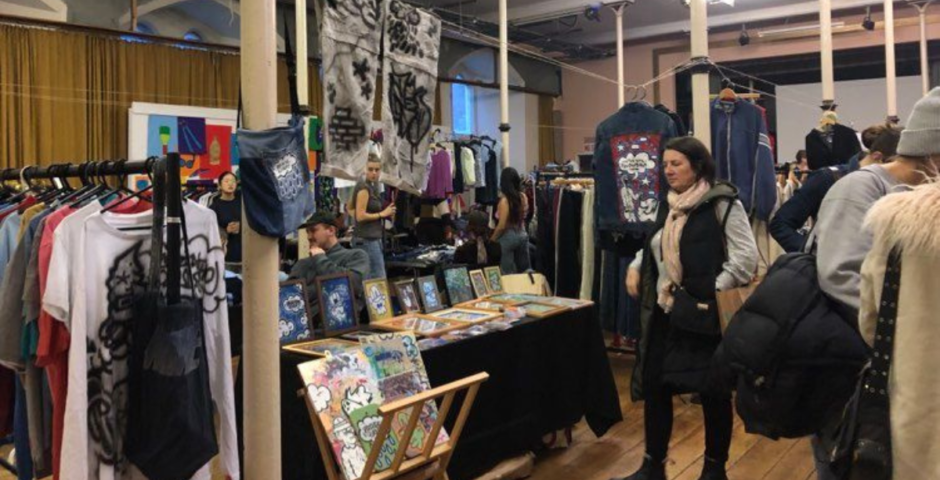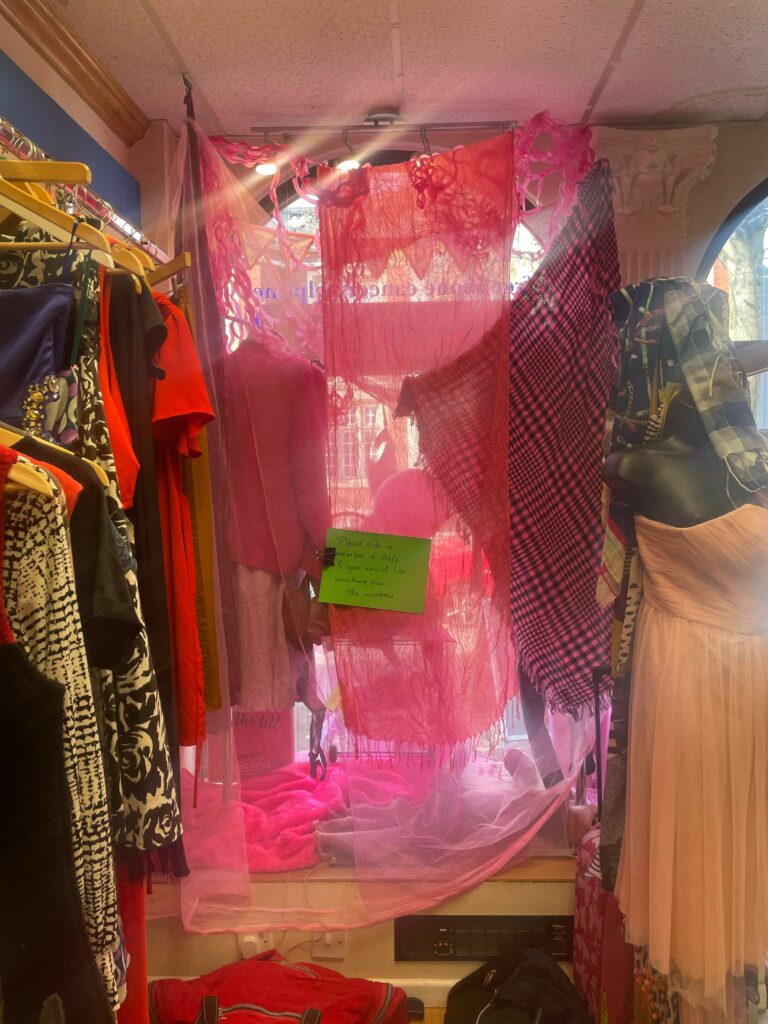
The charity shop conversation: Are Gloucester Road’s charity shops at risk of gentrification?
Gloucester Road is an exciting discovery for thrifty Bristol students, but are our charity shop habits as ethical as we think?
In comparison to other charity shop hotspots, including the likes of Cotham Hill, Gloucester Road largely remains reasonably priced. A few quid here and there for some super cute pieces doesn’t exactly break the bank, though it’s not to say that they aren’t catching on. “Vintage” sections are popping up across stores, and often they come steeply priced (think Beyond Retro).
G-Road is undeniably an absolute gem for charity shop fiends. Swarming with groups on a mission to complete the street and bag some banging outfits. As students on a budget, we all love a good steal. So naturally, we sent our own Bristol Tab investigators to take a little look and it’s safe to say they did not return empty handed. Adidas shorts for under a tenner? Consider us sold. (It’s for research purposes…)
But with the lines blurring between charity shops and the classic up-market vintage stores, it questions who these establishments are really catering for.

Eco-trendy student fashion
Vintage is super on trend, and charity shops know this (or more importantly, were forced to know how to market this after the demographic for linen trousers suddenly shifted from middle-aged mums to 20-year-old girls). After all, statement pieces are essential in keeping up with the Bristol fashion scene. How else are you meant to achieve that throwback, rough-around-the-edges look? Really though, us fashion-forward students are serious about our second hand clothes (we almost have a God complex about it). There is nothing better than rummaging through the rails to discover some totally unique pieces.
But with all the excitement that sustainability brings, are we forgetting the origins of charity shops? They are now teeming with the climate conscious looking to set themselves apart.
In theory, it’s positive that the stigma surrounding “chazza” shops are fading, and that the shops themselves can make a bit more cash. But unfortunately, it is not that black and white. Without the option of affordable garments, those on a lower income are pushed into fast-fashion stores – causing a whole new host of issues. Perhaps most notably is the demonisation of those who shop in fast-fashion, for “destroying” the environment with their shopping habits, rather than you know, criticising the massive corporations actually responsible for the damage.
The pressure to look and dress a certain way is immense, and for someone without disposable income to burn, it can also be extremely stressful. It’s becoming increasingly economically impossible to outwardly express yourself without depending on high-street stores, and getting a grilling from those of us who can afford to preach about sustainability whilst also catching six flights a year.

Resale culture
It’s hard to ignore the impact of re-selling sites on these rising prices. Resale culture is rife. Seeing a substantial rise in recent years, these platforms have been praised by both buyers and sellers, creating a convenient way of getting rid of old clothes without chucking them in landfill, and being able to find that perfect piece you know your friends won’t have. They are particularly popular amongst us students, convincing ourselves we are grinding on our side hustle, when in reality we are just shifting our pieces for a lot less than we bought them for.
But there is a new, dedicated type of seller which you are likely familiar with. The one who happens to have a wardrobe full of priceless vintage garms. More likely, clothing they acquired for a bargain at a charity shop or Kilo Sale, and then quadrupled the price. Clever, but extortionate, and in my opinion kind of unethical.

Considering its location in Stokes Croft, recently criticised for the death of Turbo Island, it is not far-fetched to believe that not even Gloucester Road’s charity shops are safe. The growing vintage market, and a noticeable rise in prices all point in that direction.
That being said, charity shopping on Gloucester Road is nothing short of fun, and has far greater prices than you’ll find in other areas of Bristol. We copped some absolute bargains on our journalistic excuse of a shopping trip there. But with the cost-of-living crisis prevalent, it is important to be aware of the effects of both our behaviour as consumers and resellers. Selling off cheap charity finds as “Y2K fashion” for a bit of profit may seem a girl boss move, but ultimately it may be preventing access to affordable, sustainable choices. Equally, your friend who relies on Primark for their bits and bobs is not the sole cause of the climate crisis.
We are all just trying to survive and look cool doing it. Before we point the finger, we need to look bigger.
Related stories recommended by this writer:
• Dress like you’re from the year 2000 but keep it sustainable: A rundown of Bristol fashion
• The best and worst of Bristol road crossings
•Bristol Hippodrome’s Cinderella panto: Craig Revel Horwood, a sky high budget and West Countryisms
